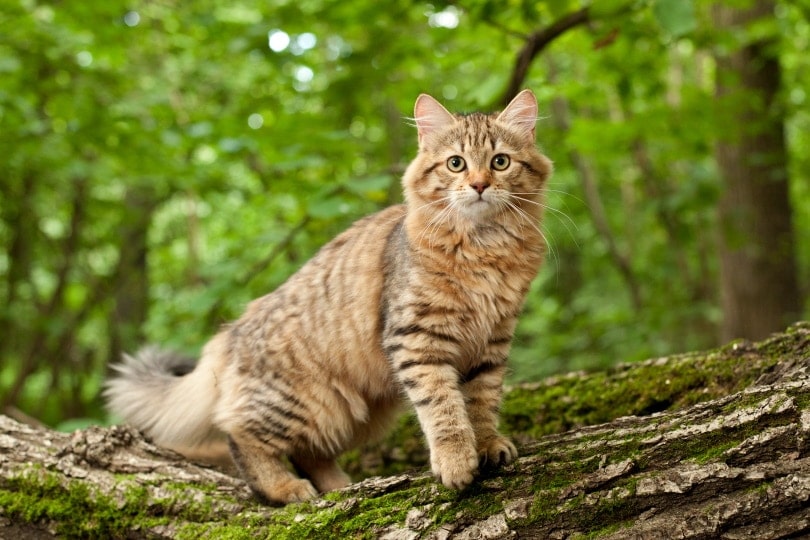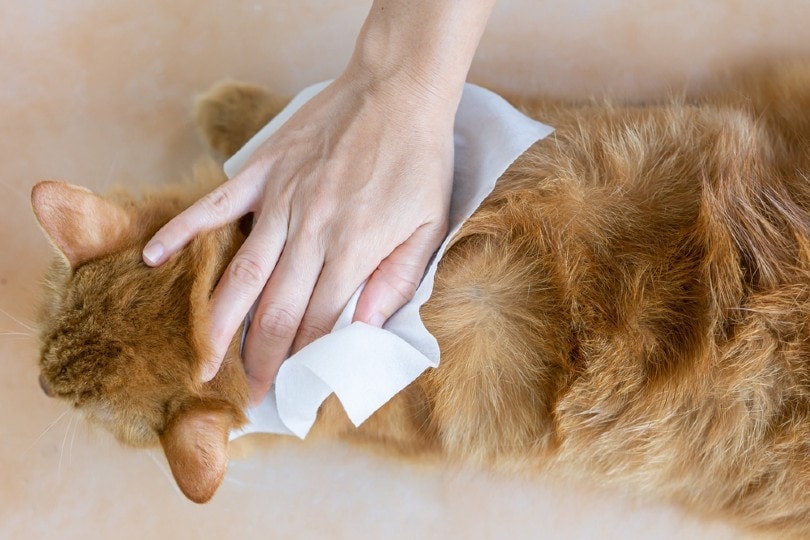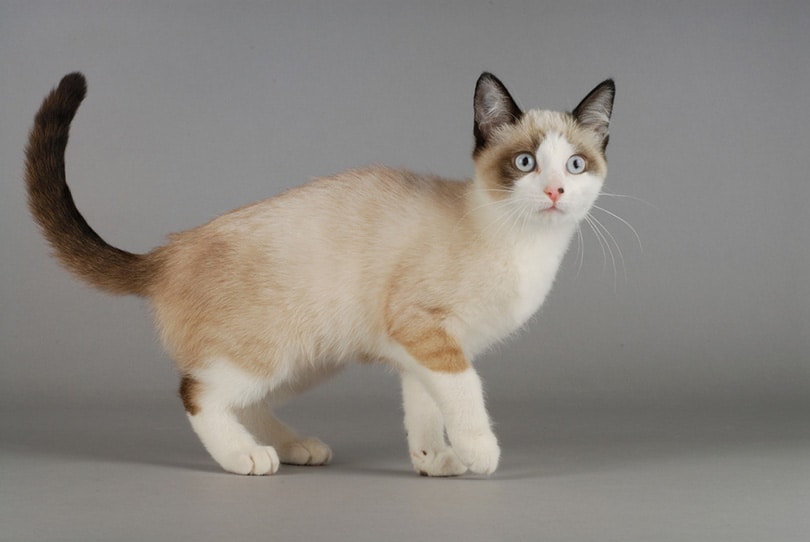Can a Cat Have ADHD or ADD? What Science Has to Say

Updated on
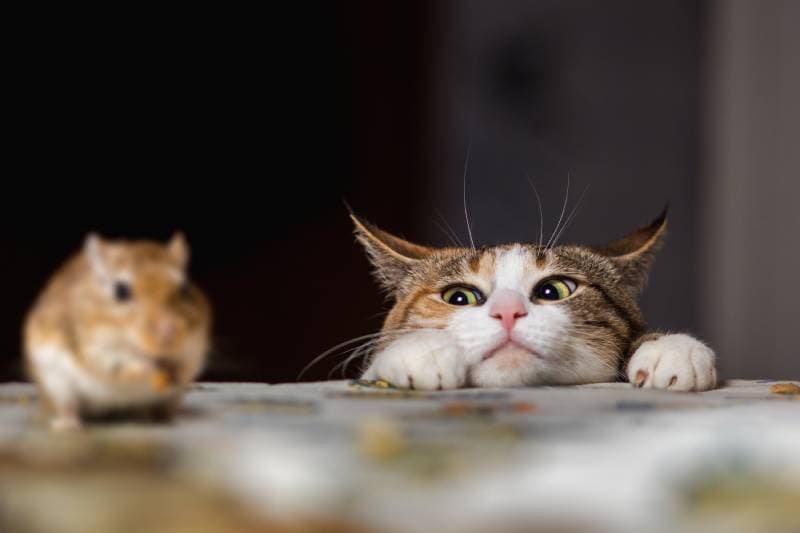
There’s growing evidence that companion animals like cats can struggle with mental health disorders, just like humans. While it’s accepted that cats suffer from several behavioral issues, experts don’t agree on whether cats can specifically have attention deficit hyperactivity disorder (ADHD) or attention deficit disorder (ADD). Some vets and behaviorists recognize this as a condition that can affect cats, but more research is needed.
Can Cats Have ADHD or ADD?
ADHD and ADD aren’t officially recognized in cats, though cats can exhibit behavioral traits that are linked to these disorders in humans—particularly children. These conditions are difficult to diagnose in humans, however, and given the differences in the way cats communicate, identifying them is even more challenging.
In addition, there are medical conditions that can cause behavioral changes in cats. For example, painful conditions like arthritis can cause irritability or aggression, and an overactive thyroid can cause personality changes and hyperactivity.

Diagnosing Mental Health Conditions in Cats
The first step in investigating mental health conditions in cats is ruling out medical causes. A veterinary behaviorist is the ideal choice since these professionals have an in-depth understanding of both medical conditions and behavioral conditions.
- Impulsive behavior
- Abrupt personality changes without an obvious cause
- Excessive sleeping
- Finicky appetite
- Extreme food selectivity
- Hyperfocus on specific stimuli
- Chasing animals
- Excessive vocalization
If you’ve spent any time around a cat, you can see how these signs could apply to most cats in some situations. That’s why it’s so challenging to not only get universal recognition for ADD or ADHD but also diagnose it.
Other Mental Health Conditions in Cats
Cats can suffer from similar mental health conditions 1 as humans, including depression, anxiety, and stress. Though these conditions can also be difficult to identify, cats share some signs with humans.
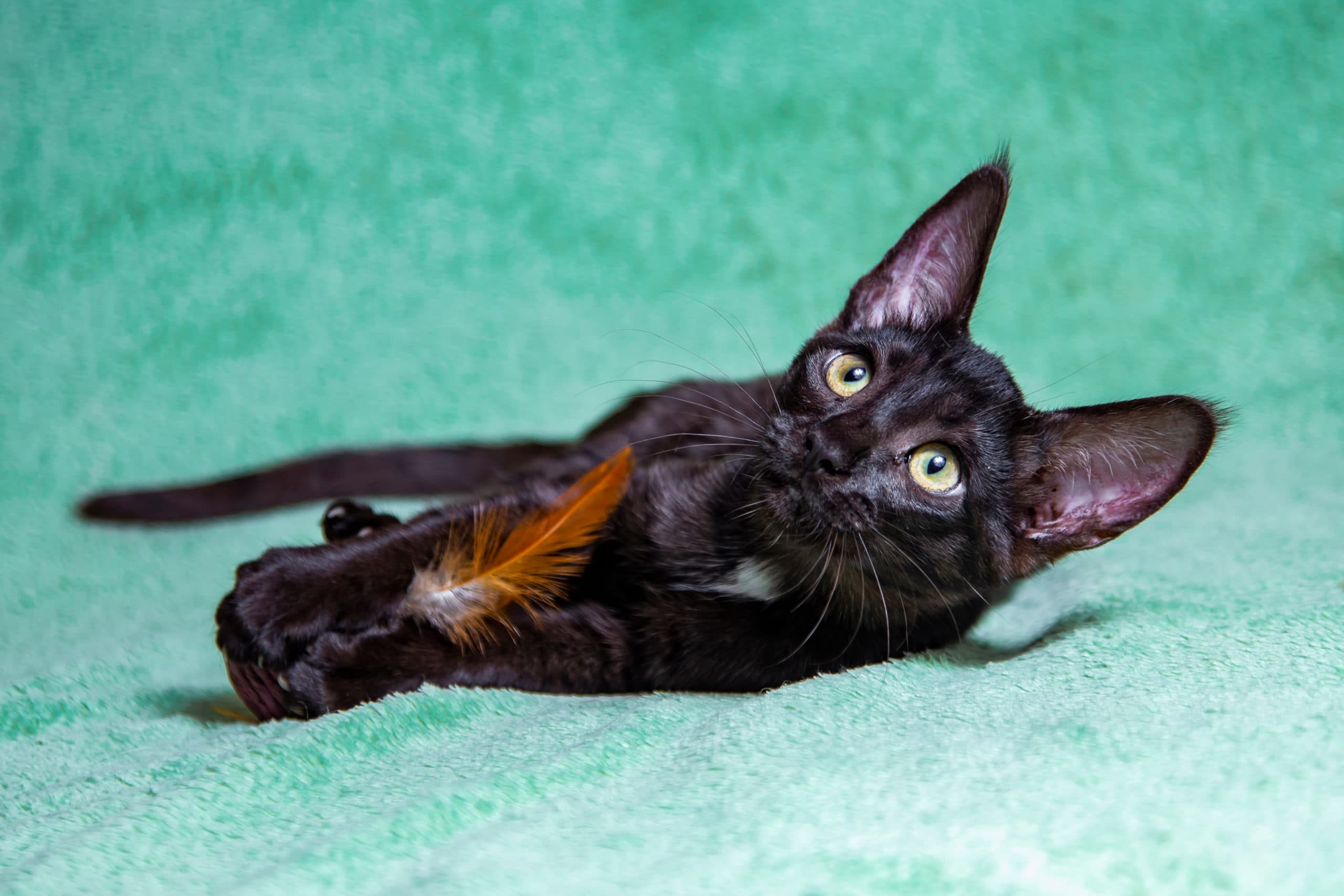
Depression in Cats
Cats can be solitary, so the signs of depression may not be immediately obvious. Some signs may include the following:
- Lack of appetite
- Excessive sleep
- Avoiding affection
- Decreased grooming
- Loss of interest in activities they once enjoyed
Anxiety in Cats
Cats are sensitive animals that may struggle with big changes in their routine or environment. Like people, they can experience anxiety, particularly surrounding traumatic experiences like conflicts with other animals.
- Loss of appetite
- Loss of interest in playing
- Restlessness or pacing
- Hiding
- Inappropriate urination or defecation
- Excessive grooming or self-mutilation
- Behavioral changes, such as irritability, aggression, and clinginess
- Excessive vocalization
Compulsive Disorders in Cats
Cats can experience compulsive behaviors, either on their own or as a sign of depression or anxiety. Negative emotions can trigger compulsive behaviors, such as frustration, fear, or boredom.
Some of the signs of compulsive disorders may include any of the following:
- Repetitive vocalization
- Self-mutilation
- Chasing their tails
- Excessive grooming
- Constant pacing
- Sucking on objects
- Chasing imaginary prey
Conclusion
When it comes to ADHD or ADD in cats, the jury is still out. But cats can experience mental health conditions that affect their quality of life, including depression, compulsive disorders, and anxiety. If you suspect your cat is suffering from a psychological condition, it’s important to consult with a veterinary behaviorist to determine the underlying cause and develop a treatment plan.
Related read:
Featured Image Credit: Sergey Zaykov, Shutterstock



